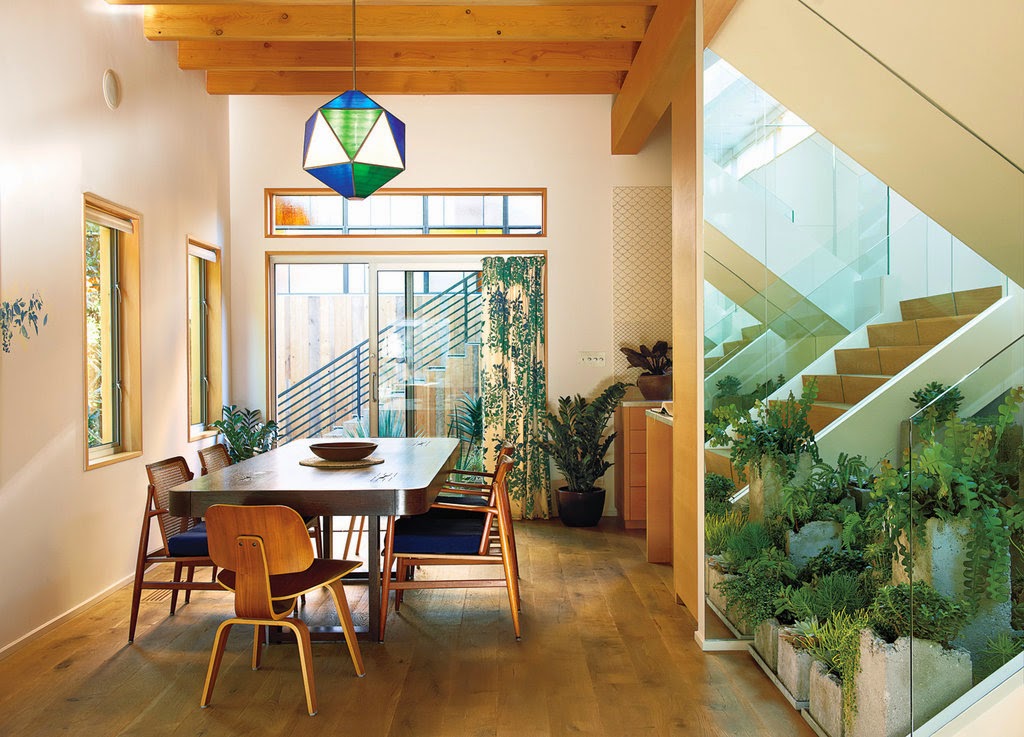


Workshop and studio of Tobias Rehberger, Frankfurt. (bron: Okolo web)
"Dieser Abend, organisiert von der SCHIRN CIRCLE-Leiterin Steffie Müller und dem Kurator Matthias Ulrich, soll einen Blick hinter die Kulissen des Kunstbetriebs bieten – und uns nicht nur ins Atelier von Tobias Rehberger führen, sondern auch in die Galerie Bärbel Grässlin, die Rehberger vertritt. Aber dazu später. Erst einmal erzählt Tobias Rehberger von seiner Arbeit. Dass sein Atelier anders ist, als die meisten anderen Künstlerateliers, wird schon beim ersten Hinsehen klar. Die zwei Stockwerke des Hinterhauses sind in eine Büroetage und eine Werkstatt eingeteilt. Rehberger betreibt hier eine Art Kunstfabrik, in der er zehn, manchmal sogar bis zu 35 Mitarbeiter beschäftigt: Architekten, eine Buchhalterin, eine Produktgestalterin, eine Produktionsleiterin, ein Studiomanager, Schreiner und Künstler. „Meistens zeichne ich einen Entwurf, den ich dann gemeinsam mit Architekten in eine 3D-Animation umsetze, danach fertigen wir in der Werkstatt ein bis zehn Modelle. Wenn die mit unseren Vorstellungen übereinstimmen, wird die Arbeit in groß gebaut“, verrät er. Danach zeigt er uns noch die Werkstatt, in der es intensiv und angenehm nach Holz riecht. Auf einer Werkbank steht das Modell einer Skulptur, die erst einmal wie ein abstrakter Knoten aussieht. Wenn Licht auf die Skulptur fällt, wirft sie jedoch einen Schatten: das englische Wort „Luck“. Schon bald wird das Gebilde, natürlich in einer größeren Version, in einem Londoner Park stehen." (bron: Schirn-magazin)

Zwischen Kisten und Kästen - Künstler Tobias Rehberger in seinem neuen Atelier. (bron: Frankfurter Neue Presse, foto: Christes)



























































